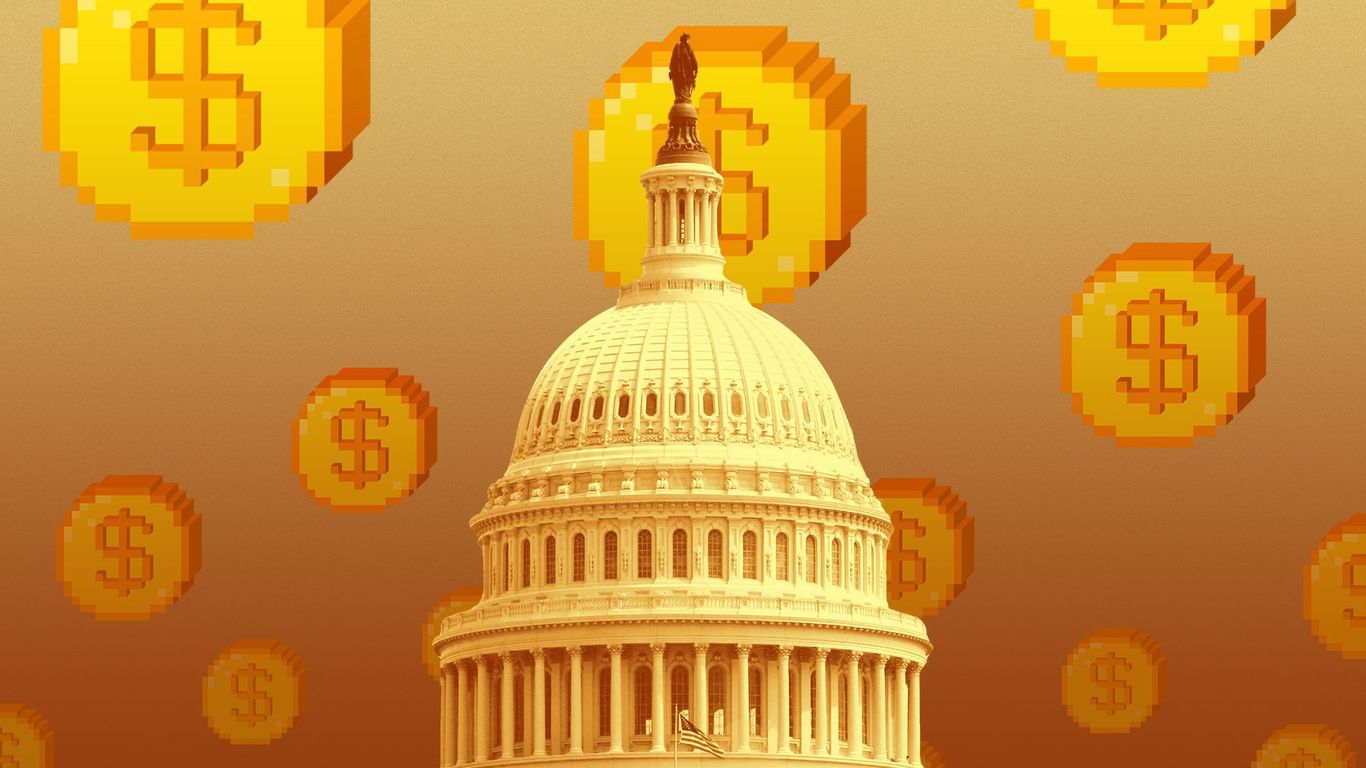
The companies standing behind over $100 billion in stablecoins — cryptocurrencies linked to the dollar — are effectively banks and should be regulated as such, according to an important new report released Monday by the Treasury Department.
Why it matters: Such regulation — "urgently needed," per Treasury — can't happen absent new legislation from Congress. If and when that happens, stablecoins — and crypto in general — would have a hugely important vote of confidence from the USA itself.
How it works: Stablecoins play a crucial role in the crypto world — one that's very similar to the role that banks play in the real economy.
- Banks provide an account that stores your dollars safely, and that also acts as a platform allowing those dollars to be easily spent or transferred.
- Stablecoins act as a safe store of dollar value, without the volatility associated with most other cryptocurrencies; they are also easily transferred, traded, and even sometimes used for payment.
Between the lines: Because banks play such a crucial role in the economy, and because they owe trillions of dollars to U.S. depositors, they're closely regulated by a host of U.S. government institutions, including the Office of the Comptroller of the Currency and the Federal Reserve. If a bank ever goes bust, deposits are insured by the Federal Deposit Insurance Corporation.
- Crypto companies have until now avoided such regulation, which has helped them grow astonishingly quickly. But individuals who own stablecoins are exposed to significant counterparty risk from both the coin issuers and the companies offering wallets that hold such coins.
The big picture: Given the number of Americans storing dollar wealth in stablecoins, as well as concerns about money laundering and terrorist financing, it's natural for the U.S. government to want to regulate the stablecoin universe much more assiduously than it's doing at the moment.
Where it stands: There is currently about $70 billion of Tether outstanding, on top of $33 billion of Circle's USDC stablecoin, and $14 billion of the Binance USD coin.
- Treasury's proposal would force Binance and Bitfinex, which controls Tether, to be regulated as U.S. depository institutions. Neither of them is a U.S. company, and they're both very, very far from meeting the criteria to become American banks.
- Circle welcomed the Treasury paper and would love to become a U.S. bank, and presumptively the foremost legal stablecoin (although the Treasury paper also makes it clear that it wants all stablecoins to be interoperable.) Even Circle, however, won't find the process easy.
The bottom line: The early dream of bitcoin was that cryptographic technology could replace the U.S. dollar and avoid the American regulatory system.
- Stablecoins have effectively reintroduced the dollar to the world of crypto; the seemingly inevitable next step is to bring them under America's regulatory umbrella.
Go deeper: Dueling visions of U.S. cryptocurrency regulation
"close" - Google News
November 02, 2021 at 06:48PM
https://ift.tt/3pZwsWQ
The massive crypto loophole only Congress can close - Axios
"close" - Google News
https://ift.tt/2QTYm3D
https://ift.tt/3d2SYUY
Bagikan Berita Ini














0 Response to "The massive crypto loophole only Congress can close - Axios"
Post a Comment